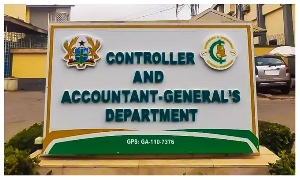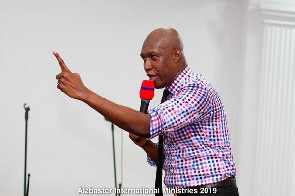Business News of Tuesday, 10 February 2015
Source: B&FT
Ghana Home Loans to issue mortgage bonds
Major mortgage provider Ghana Home Loans has said it intends to issue medium-term mortgage-backed bonds by the third quarter of the year to raise more money, as it sees bright prospects ahead.
The home-loans industry, it said, is bouncing back after reeling under the weight of cedi depreciation last year and the dollar restrictions introduced by the Bank of Ghana.
The offshore market has also seen a rebound after the credit crunch that hit major economies, thereby affecting the incomes of those who live abroad but buy homes in Ghana.
“We have a huge portfolio of mortgages; we are going to securitise them to raise funding and use the mortgage receivables to service those securities,” Kojo Addo-Kufour, Chief Operating Officer of the company told the B&FT.
“So think of it as using our mortgages as collateral to borrow, if you like. Just like you use your house as collateral to borrow, we are using our mortgage portfolio as collateral to borrow. We did a lot of work last year. So we are in good shape for this year. It allows us to design products which we are unable to do now.” Last year, he said, was “a very tough one” for the company in view of the local currency’s poor showing and the dollar restrictions introduced by the Bank of Ghana to contain the situation.
The company trades in dollar-rated mortgages and did US$12million worth of deals in 2014, which was lower than what it did in the three preceding years: US$19.5million in 2011, US$18.2 in 2012 and US$25million in 2013.
“People were generally not sure about how the macro economic conditions were going to turn out. If they were going to take a loan, were their jobs safe? There was a lot of uncertainty. People just called and said hold on, put my application on hold; don’t disburse, I am not going ahead,” Mr. Addo-Kufour said.
In spite of the challenges, however, he said demand continues to be “as strong as ever”, with a lot more people preferring to buy rather than build by themselves.
“The fact that the population is growing in itself means demand will continue to grow. And a lot more people tend to be comfortable with buying rather than building because of the difficulties with building.”
He said, however, that “I think it is fair to say that stability of the cedi will confirm our optimism or dismantle everything. Once it starts moving everything is thrown overboard. But to the extent that we are assuming a stable cedi, we are generally quite optimistic about 2015”.
While a sizeable portion of the population is going in for mortgages, a lot of people, even in the active workforce, are still incapable of financing mortgages due to what Mr. Addo-Kufour sees as the defective nature of Ghana’s economy.
“If you look at the incomes of a lot of people and what they qualify for, sometimes it can be depressing. You see someone on a relatively respectable salary, you work the numbers and they do not quality for much -- and that is because cedi interest rates are still high.
If your Treasury bills are in the mid-20s, it signals where your mortgage rates will be. So you can’t borrow in cedis. It doesn’t make sense. And people are concerned after the 2014 experience about taking dollar loans. So they look at dollars and they are nervous; and they look at the cedi and can’t afford it.”
While the country is currently said to do between 40,000 and 45000 housing units per annum, the Ministry of Works and Housing estimates that a minimum of 85,000 units are needed annually to address a housing deficit of 1.7 million over the next 20 years.












